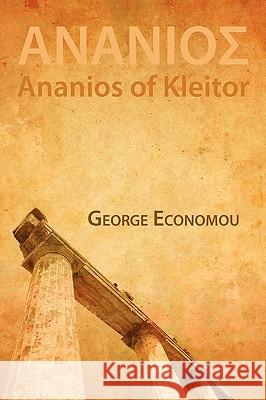Ananios of Kleitor » książka
Ananios of Kleitor
ISBN-13: 9781848610330 / Angielski / Miękka / 2009 / 144 str.
Poetry. Translated from the Greek by George Economou. ANANIOS OF KLEITOR introduces to the revolving stage of world literature the work of an ancient Greek poet largely unknown and hitherto unread outside of a small circle of cognoscenti. The poet's extant poems and fragments, as well as the record of their reception and preservation, are presented in this one-of-a-kind book of the sort that would have appealed to Menippus of Gadara and his followers, a medley of verse and prose and a diversity of genres, ranging from the epistolary novel to scholarly annotations and an Index Nominum. Ananios and his scholars and commentators perform their work at the edge of the real world and the margins of a thoroughly historicized and critically acute context. Ananios was born in 399 BC in the Arcadian city of Kleitor according to the third century AD author Theonaeus, who refers to a lost work by Chamaemelon of Patrae on the poets of Achaia and Arcadia in which the poet's birth is said to have occurred during the Nemean Crown Games following the 95th Olympiad. Forty-one poems and fragments of his have survived, along with twenty-five passages of verse attributed to him in quotations cited in various commentaries and literary works extending from the second century BC to the eleventh century AD. The fragmentary nature of so much of his writing makes it impossible for us to speak with full confidence about the range of his subject matter, though the ancient and Byzantine attestations, sparse as they may be, primarily identify him as an amatory poet.
Ananios of Kleitor introduces to the revolving stage of world literature the work of an ancient Greek poet largely unknown and hitherto unread outside of a small circle of cognoscenti. The poets extant poems and fragments, as well as the record of their reception and preservation, are presented in this one-of-a-kind book of the sort that would have appealed to Menippus of Gadara and his followers, a medley of verse and prose and a diversity of genres, ranging from the epistolary novel to scholarly annotations and an Index Nominum. Ananios and his scholars and commentators perform their work at the edge of the real world and the margins of a thoroughly historicized and critically acute context.











